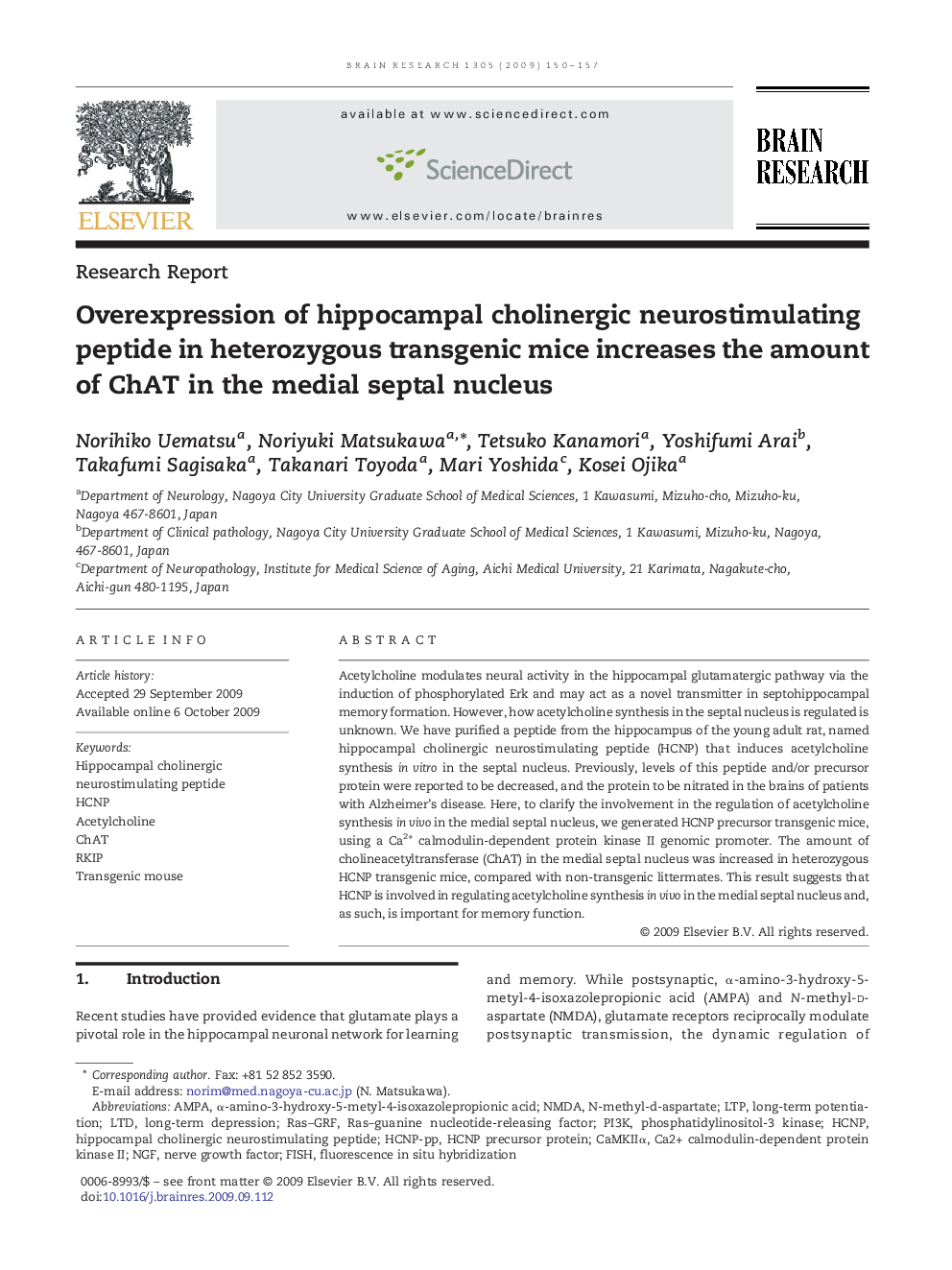| Article ID | Journal | Published Year | Pages | File Type |
|---|---|---|---|---|
| 4327672 | Brain Research | 2009 | 8 Pages |
Acetylcholine modulates neural activity in the hippocampal glutamatergic pathway via the induction of phosphorylated Erk and may act as a novel transmitter in septohippocampal memory formation. However, how acetylcholine synthesis in the septal nucleus is regulated is unknown. We have purified a peptide from the hippocampus of the young adult rat, named hippocampal cholinergic neurostimulating peptide (HCNP) that induces acetylcholine synthesis in vitro in the septal nucleus. Previously, levels of this peptide and/or precursor protein were reported to be decreased, and the protein to be nitrated in the brains of patients with Alzheimer's disease. Here, to clarify the involvement in the regulation of acetylcholine synthesis in vivo in the medial septal nucleus, we generated HCNP precursor transgenic mice, using a Ca2+ calmodulin-dependent protein kinase II genomic promoter. The amount of cholineacetyltransferase (ChAT) in the medial septal nucleus was increased in heterozygous HCNP transgenic mice, compared with non-transgenic littermates. This result suggests that HCNP is involved in regulating acetylcholine synthesis in vivo in the medial septal nucleus and, as such, is important for memory function.
